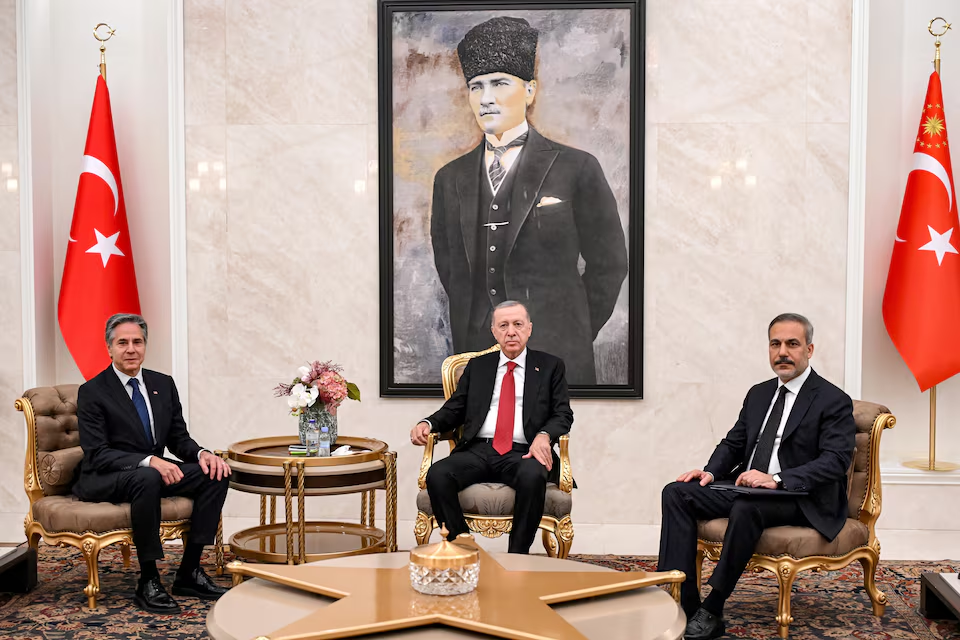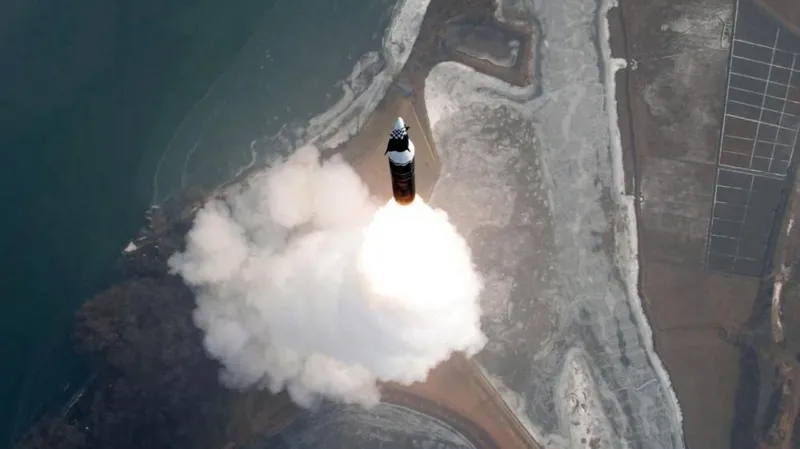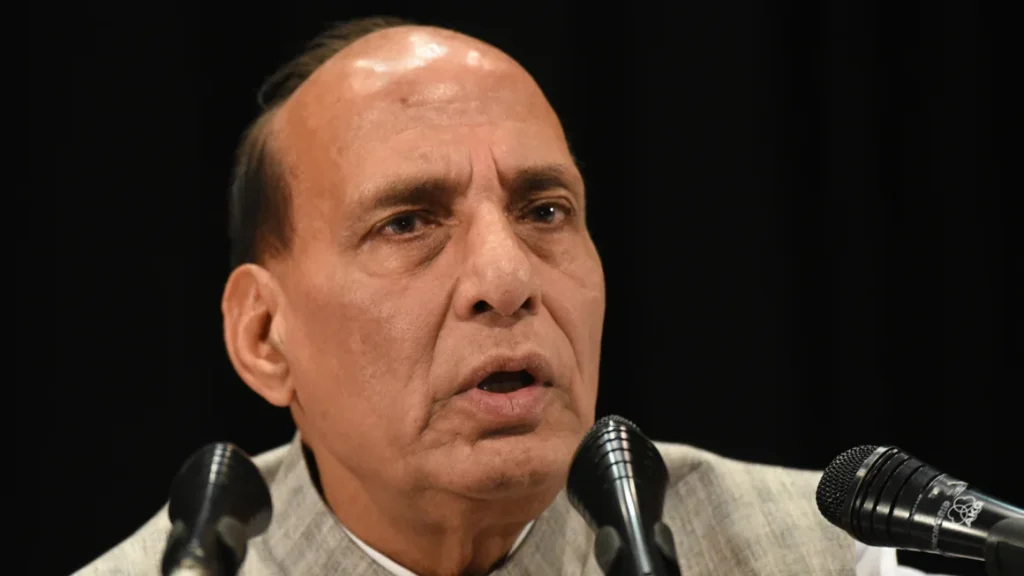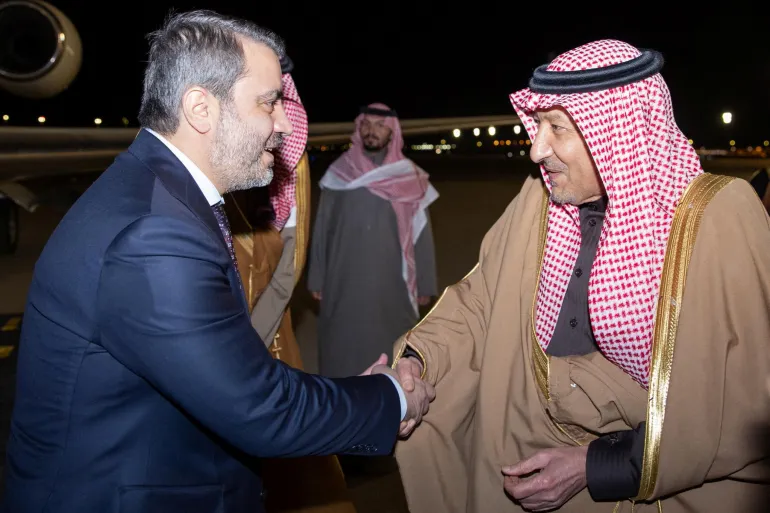Secretary Blinken’s Meeting with Turkish President Erdoğan

U.S. Secretary of State Antony Blinken met with Turkish President Recep Tayyip Erdoğan in a highly anticipated diplomatic encounter, where a wide range of critical issues were discussed. This meeting is particularly significant as it marks a moment of renewed dialogue between the United States and Turkey, two NATO allies that have experienced strains in their relationship over the past several years.
Strengthening U.S.-Turkey Relations
The meeting between Blinken and Erdoğan comes at a time when the relationship between the U.S. and Turkey is undergoing a careful recalibration. Over the years, tensions have arisen due to differences over several foreign policy issues, including Turkey’s military actions in Syria, its purchase of the Russian S-400 missile defense system, and its role in regional security. Despite these challenges, the two countries have maintained strong economic ties and mutual strategic interests as members of NATO.
In his discussions with Erdoğan, Blinken emphasized the importance of U.S.-Turkey cooperation in addressing key regional and global challenges. Both countries have significant geopolitical interests in the Middle East, Eastern Europe, and the broader international security landscape. From counterterrorism efforts to maintaining NATO’s integrity, the U.S. and Turkey share common goals, even if their approaches at times differ.
During the meeting, Blinken underscored the need for continued dialogue to resolve the lingering issues between the two nations, including Turkey’s concerns regarding the Kurds and the ongoing Syrian conflict. Additionally, he reiterated the U.S. commitment to its alliances, including NATO, and expressed the United States’ interest in working closely with Turkey to address global issues such as climate change, human rights, and security.
Key Issues Discussed
- Syria and the Kurdish Conflict
One of the major points of contention between the U.S. and Turkey is the Kurdish issue. Turkey has long been concerned about the Syrian Democratic Forces (SDF), which it views as a terrorist group aligned with the Kurdistan Workers’ Party (PKK), a Kurdish separatist group designated as a terrorist organization by Turkey, the U.S., and the European Union.
The U.S. has provided support to the SDF in the fight against ISIS, a move that has strained relations with Turkey, which sees the SDF as a direct threat to its national security. In their meeting, Blinken acknowledged Turkey’s security concerns but reiterated the U.S.’s position on continuing to support the SDF in Syria. However, both sides expressed a willingness to explore ways to reduce tensions and find common ground.
- Turkey’s Purchase of the S-400 System
Another significant issue that has strained U.S.-Turkey relations is Turkey’s purchase of the Russian-made S-400 missile defense system. The U.S. has repeatedly warned Turkey that its acquisition of the S-400 would undermine NATO’s defense capabilities, as the system could potentially compromise the security of NATO’s military infrastructure. In response, the U.S. removed Turkey from its F-35 fighter jet program, citing concerns over the integration of the S-400 system with NATO’s defense architecture.
In his meeting with Erdoğan, Blinken likely raised this issue, stressing that the S-400 system’s presence in Turkey could jeopardize Turkey’s relationship with NATO and its defense cooperation with the U.S. Turkey, on the other hand, has maintained that the S-400 was a necessary acquisition for its national defense and that it will not abandon the system despite pressure from the U.S. and its European allies.
- Regional Security and NATO
As members of NATO, the U.S. and Turkey have shared security interests, particularly in the context of the ongoing tensions in the Mediterranean, the conflict in Ukraine, and the broader Middle East. Blinken and Erdoğan discussed ways to strengthen NATO’s collective defense and ensure that all members are aligned in addressing emerging security challenges.
Turkey has been playing a key role in NATO’s efforts to bolster its eastern flank, especially in the context of the Russian invasion of Ukraine. Erdoğan has been a vocal supporter of Ukraine’s sovereignty and has supplied drones to the Ukrainian forces. However, Turkey has also called for a balanced approach to resolving the conflict, advocating for peace talks and opposing the imposition of additional sanctions on Russia. This balancing act between NATO unity and its independent foreign policy is one of the most complex aspects of Turkey’s position within the alliance.
- Human Rights and Democracy
In addition to these regional security concerns, Blinken also raised issues related to human rights and democratic values. The U.S. has repeatedly criticized Erdoğan’s government for its treatment of opposition figures, journalists, and civil society organizations. During their meeting, Blinken reiterated the U.S. commitment to supporting human rights and the rule of law, calling on Turkey to address concerns over the crackdown on dissent and press freedom.
Erdoğan, however, has often rejected such criticism, accusing the U.S. of meddling in Turkey’s internal affairs. Despite these differences, Blinken’s visit provided an opportunity for both sides to engage on this sensitive issue, with Blinken emphasizing that dialogue is essential for fostering democratic principles.
A Positive Step Forward?
While the issues between the U.S. and Turkey remain complex, the meeting between Blinken and Erdoğan was seen as a positive step forward in resetting bilateral relations. Both leaders expressed a desire to continue working together to address shared concerns, including counterterrorism, regional stability, and strengthening NATO.
The meeting also underscored the importance of dialogue in resolving differences and finding common ground. Blinken’s visit signaled the Biden administration’s intention to engage more deeply with Turkey, seeking to strengthen the partnership despite the existing challenges.
For Turkey, the meeting represented an opportunity to reaffirm its strategic importance to the U.S. and NATO. Erdoğan is likely to continue navigating his foreign policy by balancing Turkey’s relationships with the West and Russia while pursuing Turkey’s national interests.
Secretary Blinken’s meeting with President Erdoğan marks a critical moment in U.S.-Turkey relations. Although the two nations have significant differences, particularly over issues such as Syria, human rights, and defense policy, both sides appear committed to maintaining a strong partnership. The talks provided an opportunity to address these concerns, and while no breakthroughs were immediately evident, they opened the door for continued dialogue.
As global security challenges persist, the role of the U.S. and Turkey in addressing issues ranging from terrorism to regional stability will be crucial. The meeting between Blinken and Erdoğan highlighted the complexities of international diplomacy but also demonstrated the importance of direct engagement in resolving disputes and strengthening alliances. Moving forward, the U.S. and Turkey will need to find ways to navigate their differences while working together to ensure the security and stability of the broader region.






